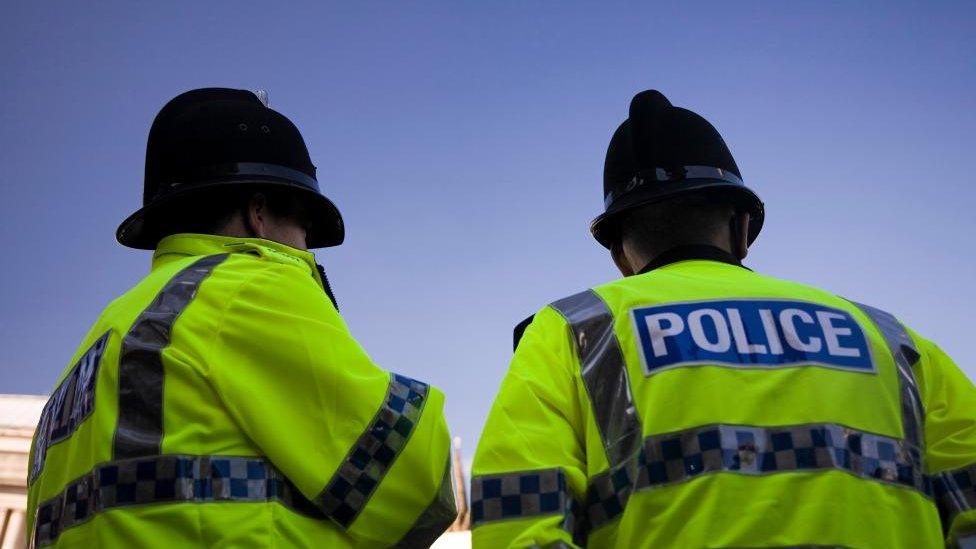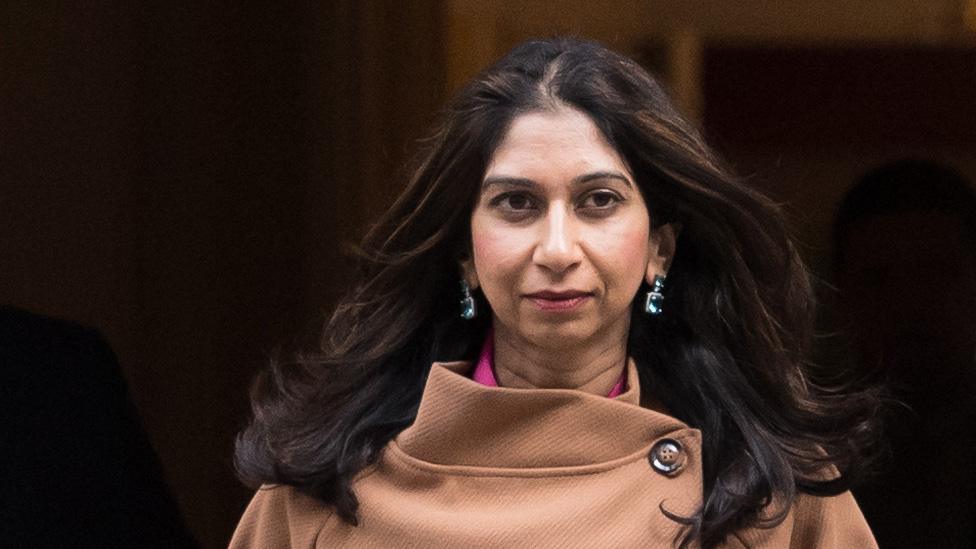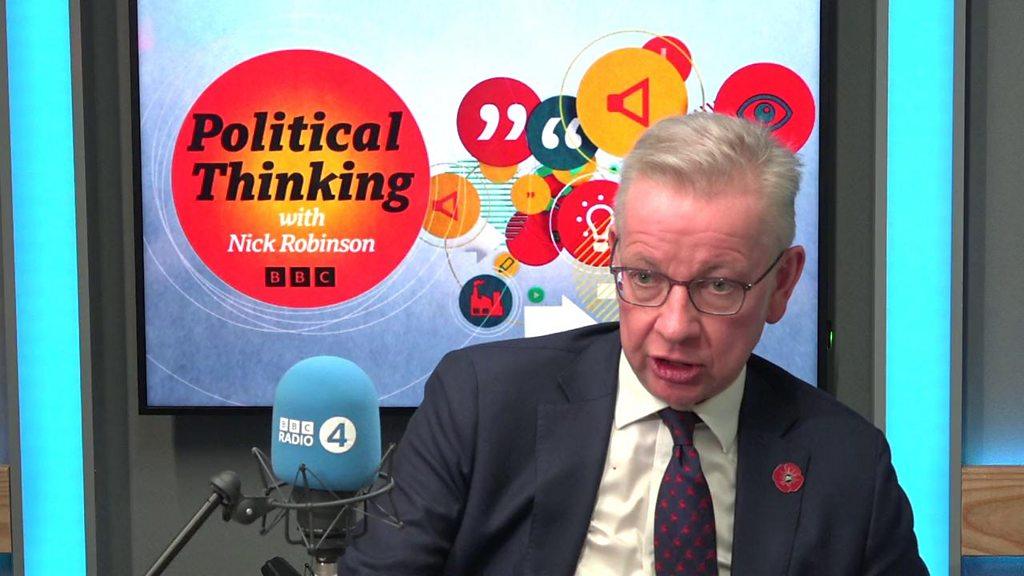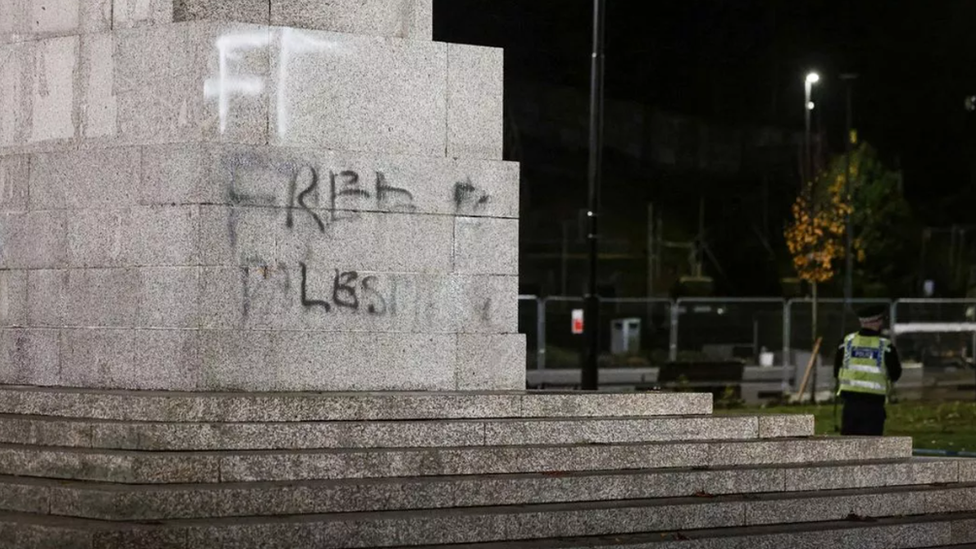Police must remain independent of politics, NPCC chair says
- Published

Police chiefs must be able to operate without political interference, one of the UK's most senior officers has said.
Gavin Stephens, the National Police Chiefs' Council (NPCC) chair, suggested policing could be undermined if "public debate" influences decision making.
Home Secretary Suella Braverman has accused the police of bias in their handling of pro-Palestinian protests.
The move left her facing calls from some within her own party to be sacked by Prime Minister Rishi Sunak.
The Metropolitan Police has faced calls to stop a march set to take place amid remembrance commemorations on Saturday.
Commissioner Sir Mark Rowley has said the demonstration can only be stopped if there is a threat of serious disorder, and that the "very high threshold" has not been reached.
Mr Sunak has vowed to hold Sir Mark "accountable" if there is unrest at the event on Armistice Day, although Downing Street has distanced itself from Ms Braverman's comments.
The NPCC brings together leaders from forces across the country to coordinate their work on the most significant issues in policing.
Speaking to reporters, Mr Stephens said that, "in policing, we need the space to make difficult operational decisions in an independent manner".
"The decisions that we take are not easy ones, but we do so impartially, without fear or favour, and in line with both the law and our authorised professional practice," he said.
Mr Stephens added it was "really important that the public debate doesn't feature" in decision making because it could "fundamentally undermine" the way policing works in the UK.
He argued that language should be used carefully and said he took his responsibility to help defuse tensions "very seriously".
"In everything that we do... how we choose to describe that activity in the public arena can set the context in which we police," Mr Stephens continued.
"So I consider that as one of my civic responsibilities, that I do what I can to give that reassurance to keep temperatures low, when we are in times of such awful, tragic international conflict that is affecting so many families across across the world."
In an article published in the Times on Thursday, Ms Braverman called those who have taken part in the pro-Palestinian protests of recent weeks "hate marchers" and claimed there was "a perception that senior officers play favourites" in how they police different demonstrations.
"Right-wing and nationalist protesters who engage in aggression are rightly met with a stern response yet pro-Palestinian mobs displaying almost identical behaviour are largely ignored, even when clearly breaking the law," she wrote.
The article led to widespread criticism, including from fellow Conservatives, and calls from opposition parties for Ms Braverman to be sacked as home secretary.
Labour's shadow home secretary Yvette Cooper described it as a "dangerous attempt to undermine respect for police", while London mayor Sadiq Khan said it was "irresponsible".
One senior Conservative MP told the BBC "the home secretary's awfulness is now a reflection on the prime minister" and that "keeping her in post is damaging him".
Downing Street said it had not cleared the article before publication and that suggested changes to the text were not made.
Defending Ms Braverman, Conservative Party deputy chair Lee Anderson said that "anyone who thinks her comments are outrageous need to get out more", while policing minister Chris Philp said it was "reasonable" for politicians to raise concerns about how policing is conducted.
Related topics
- Published9 November 2023

- Published9 November 2023

- Published9 November 2023
